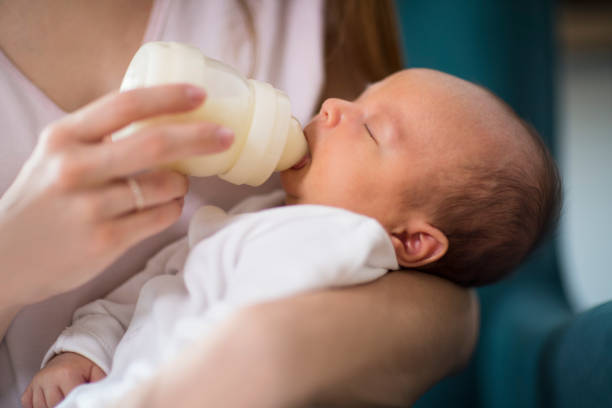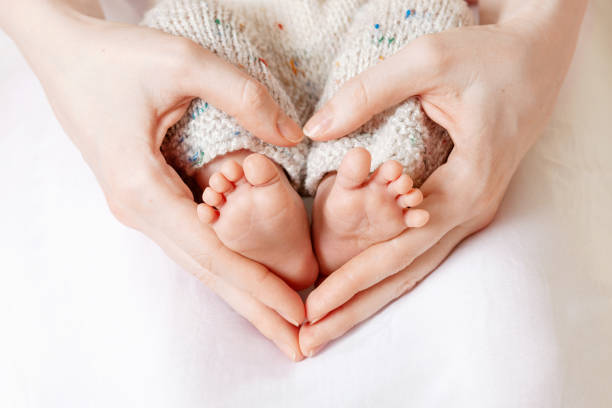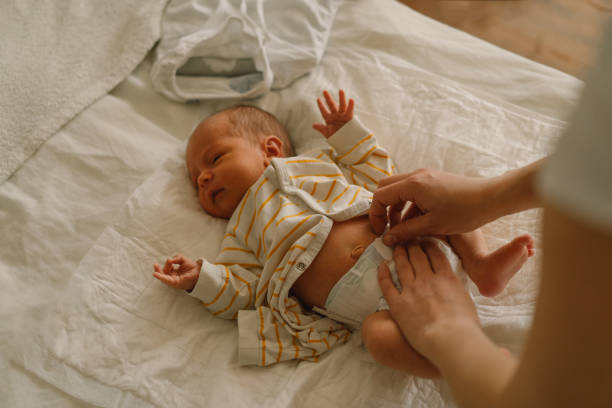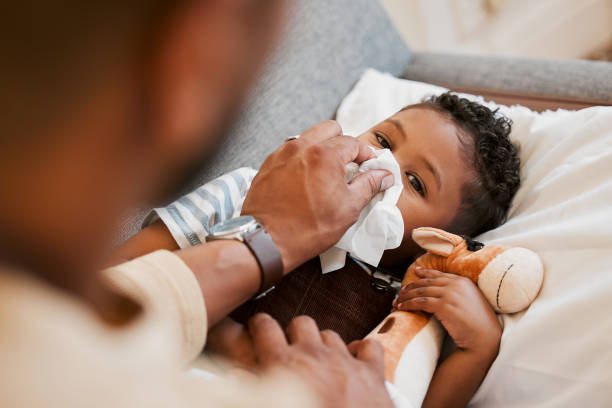Table of Contents
Introduction
Welcoming a newborn into the world is one of life’s most beautiful moments, but it can also be overwhelming for new parents. Essential newborn care involves much more than just feeding and changing diapers; it’s about ensuring your baby’s physical and emotional well-being from the very beginning. As a new parent, understanding how to provide the right care can make all the difference in your baby’s early development.
Whether you’re a first-time parent or already have some experience, the following essential newborn care tips will help you navigate those early days with confidence. Let’s dive into these proven strategies that will set the foundation for your baby’s growth and happiness.
1. Feeding Your Newborn: Understanding the Basics
Feeding is at the top of the list when it comes to essential newborn care. Your baby’s health and development depend heavily on proper nutrition, whether you’re breastfeeding or bottle-feeding.
Breastfeeding: A Natural Start
Breastfeeding is the most natural way to nourish your newborn. It provides essential nutrients and boosts your baby’s immune system.
- Nutrient-rich: Breast milk provides all the vitamins, minerals, and proteins your baby needs to grow strong and healthy in the first six months.
- Immunity Boost: Essential newborn care through breastfeeding transfers antibodies from mother to baby, helping protect your baby from illnesses and infections.
- Bonding: Breastfeeding also fosters a deep emotional bond between mother and baby, providing comfort and reassurance.
If you’re struggling with breastfeeding, it’s okay to ask for help. Lactation consultants are a great resource to guide you through any challenges. Remember, breastfeeding is a learning process for both you and your baby, so be patient.

Bottle Feeding: An Alternative Option
If breastfeeding isn’t an option or you prefer to bottle-feed, either with formula or expressed breast milk, it’s important to make sure your bottles are clean and your milk is prepared correctly. Always check the temperature of the milk before feeding, and ensure your baby is positioned correctly to prevent air from being swallowed.
Newborns typically need to eat every 2-3 hours. Initially, your baby will feed on demand, and this helps regulate their feeding schedule. As they grow, the time between feedings may extend, but for the first few months, maintaining regular feeding intervals is crucial to support their growth and development and also it is important aspect of newborn care.

2. Diapering and Skin Care: Keeping Your Baby Comfortable
Newborns have incredibly sensitive skin, so diapering is an important part of their care. Follow these simple steps to keep your baby comfortable and prevent diaper rash.
Choosing the Right Diapers
Whether you choose cloth or disposable diapers, it’s essential to pick the right size and ensure that the diaper fits snugly around your baby’s waist and legs. The correct size will help prevent leaks and skin irritation. Make sure to change your baby’s diaper frequently—at least every 2-3 hours or whenever it becomes wet or soiled.
Preventing Diaper Rash
Diaper rash is common in newborns, but it’s easy to prevent with the right care. Here’s what you can do:
- Use a gentle, fragrance-free diaper cream after each diaper change to create a barrier against moisture.
- Allow your baby to have diaper-free time to help air out their skin.
- Change diapers regularly to keep the skin dry and clean, avoiding prolonged exposure to wetness.
Bathing Your Baby
In the first few weeks, give your baby sponge baths until the umbilical cord stump falls off. Use lukewarm water and a mild, fragrance-free baby soap. Gently wash your baby’s face, neck, hands, and feet. As your baby grows, you can transition to using a baby bathtub.
3. Sleep Tips for Newborns: Creating Safe Sleep Habits
Sleep is essential for your newborn’s development. Ensuring your baby sleeps safely and comfortably is an important part of their care.
Safe Sleep Practices
To reduce the risk of sudden infant death syndrome (SIDS), always place your baby on their back to sleep, even for naps. Avoid soft bedding like pillows, blankets, or stuffed animals in the crib, as these can increase the risk of suffocation. A firm mattress is the safest choice for your baby’s sleep space. Keep the room cool: Dress your baby in light, breathable fabrics and keep the room at a comfortable temperature to prevent overheating.
Establishing a Sleep Routine
While newborns don’t have a consistent sleep schedule in the first few months, it’s a good idea to start establishing a calming bedtime routine. This could include a soothing bath, soft lullabies, or a few minutes of quiet cuddle time. These activities signal to your baby that it’s time to wind down for sleep.
Creating a Sleep-Friendly Environment
Create a peaceful, safe sleep environment for your baby. Dim lights, a quiet room, and a comfortable temperature will encourage restful sleep. Some parents also use white noise machines to drown out household noises, helping babies stay asleep longer.
4. Bonding and Emotional Development: Creating a Strong Connection
Bonding with your newborn is not only an emotional experience but also important essential newborn care for your baby’s social and emotional development. Building a strong bond will help your baby feel secure and loved.
Skin-to-Skin Contact
Skin-to-skin contact immediately after birth helps regulate your baby’s body temperature, heart rate, and breathing. This practice also promotes a deep emotional connection between you and your baby. Make skin-to-skin time a daily practice, even if it’s just for a few minutes at a time.

Talking and Singing to Your Baby
Even though your newborn can’t understand words, talking to them is an important part of their emotional development. Your baby will begin to recognize your voice, and hearing your soothing words will calm them.
Physical Touch and Cuddling
Physical touch plays a crucial role in your baby’s development. Gentle rocking, holding, and cuddling your baby helps them feel loved and secure. These actions also release oxytocin, a hormone that strengthens the emotional bond between you and your baby.
5. Health and Safety: Keeping Your Baby Safe and Sound
Your baby’s health and safety are paramount. Here are some key tips to keep your baby protected.
Immunizations
Ensure that your baby receives all recommended vaccinations according to their pediatrician’s schedule. Vaccines are crucial for protecting your baby from serious illnesses like whooping cough, polio, and hepatitis.
Babyproofing Your Home
As your baby grows and becomes more mobile, babyproofing your home will become essential. For now, focus on removing small objects that could be a choking hazard, and ensure that all furniture is secure. Installing safety gates on stairs and securing furniture to walls are key steps to prevent accidents as your baby starts to move around.
Monitor Your Baby’s Health
Pay attention to your baby’s health and development by tracking their milestones and scheduling regular check-ups with the pediatrician. If you notice any signs of illness, or if something doesn’t feel right, don’t hesitate to consult a healthcare professional.
Conclusion: Ensuring Your Baby’s Healthy Start
Incorporating these essential newborn care tips into your daily routine will help ensure that your baby thrives during those crucial first months. From feeding and diapering to emotional bonding and safe sleep practices, these tips are the building blocks for raising a happy, healthy baby.
Remember, no one has all the answers right away. It’s okay to ask for help and to take things one day at a time. Trust your instincts, and enjoy these precious early moments with your newborn. With the right care, you and your baby will flourish together.
Frequently Asked Questions
What is essential newborn care, and why is it important for new parents?
It refers to the fundamental practices that ensure your baby’s health, safety, and well-being during the early stages of life. It includes feeding, sleep practices, bonding, immunizations, and regular check-ups. Proper essential newborn care helps promote healthy growth, emotional development, and a secure foundation for your baby’s future.
How does essential newborn care impact my baby’s development?
Essential newborn care significantly impacts your baby’s development by providing the right nutrition, a safe environment, emotional bonding, and physical protection. These foundational practices help your baby grow stronger, feel more secure, and develop healthy sleep and feeding habits.
How can I ensure I’m following the right essential newborn care practices for my baby?
To follow the right essential newborn care practices, focus on maintaining regular feedings, providing a safe sleep environment, engaging in skin-to-skin contact, and ensuring frequent check-ups. Stay informed by consulting with healthcare providers, reading trusted resources on essential newborn care, and following your baby’s cues. Trusting your instincts and asking for support when needed will ensure you provide the best care.
What are the key components of essential newborn care for first-time parents?
For first-time parents, essential newborn care includes focusing on feeding, safe sleep practices, diapering, bonding, and monitoring your baby’s health. Proper nutrition (whether breastfeeding or bottle-feeding), creating a safe sleep environment, regular skin-to-skin contact, and babyproofing your home are all vital aspects of newborn care that ensure your baby thrives.
How can essential newborn care practices help prevent common health issues in newborns?
By following essential newborn care practices, such as regular feedings, keeping your baby’s skin clean and dry, and staying on top of vaccinations, you can prevent many common health issues like dehydration, diaper rash, and infections. Safe sleep practices also reduce the risk of sudden infant death syndrome (SIDS), while consistent bonding helps foster emotional resilience.



